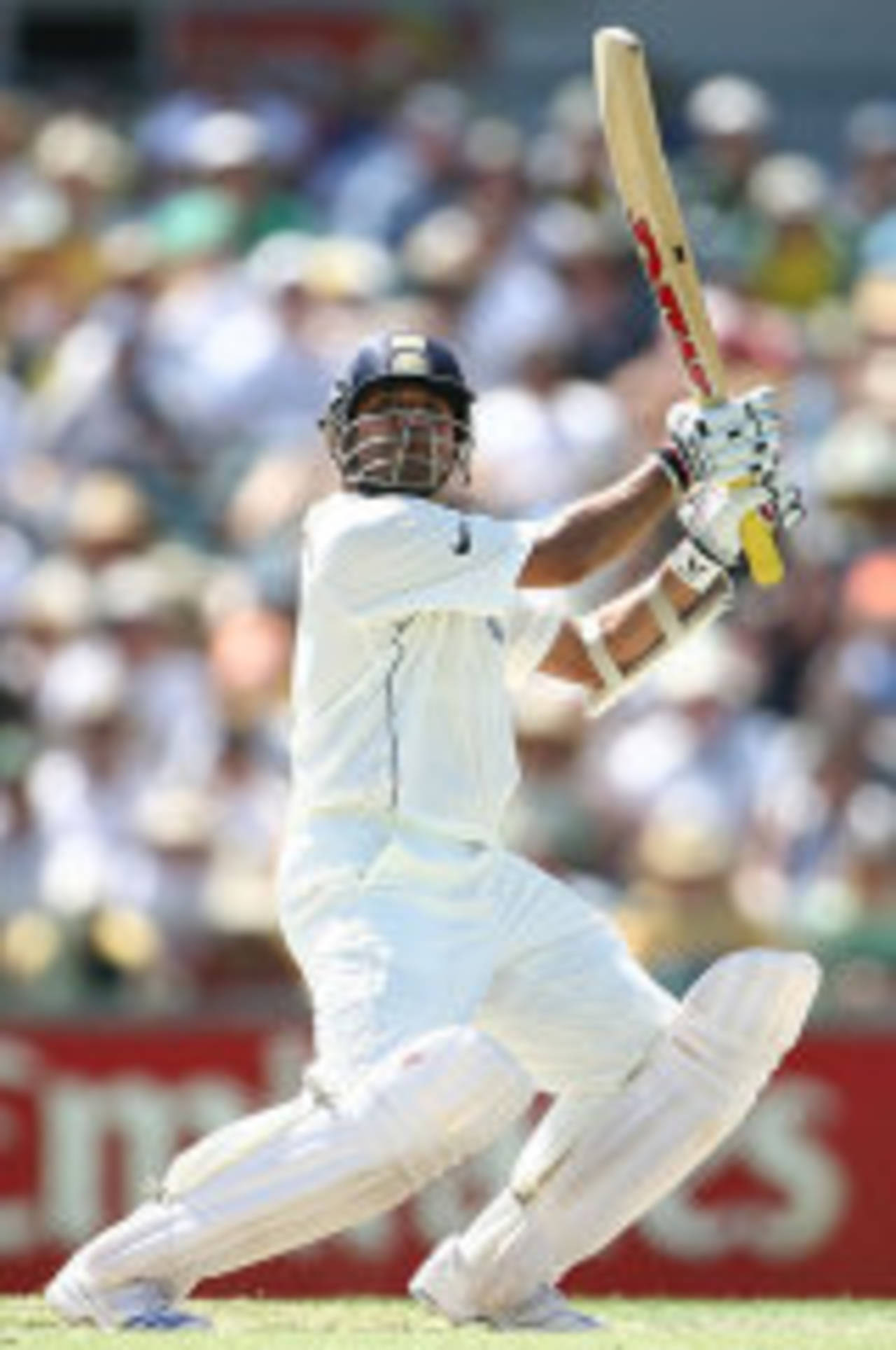Tendulkar's bid for immortality
The way Tendulkar is batting in Australia, that part will be his to play for years yet, at the end of which he might well stand on the pedestal that Bradman chose for him and which Cricket reserves for her most durable geniuses
Mukul Kesavan
Feb 25, 2013, 10:33 PM

Getty Images
This explanation of late-period Tendulkar suggested a batsman using his formidable skills to adapt to circumstances instead of bending circumstances to his will as he had done in his first half of his career. Even his big innings this century seemed to bear witness to a once-great batsman adapting magnificently to the physical toll of a long career.
Take his double century at the SCG in the last Test of India's previous tour of Australia. It was a crucial innings, one that allowed the Indians to press for a victory that eventually eluded them, but that's not why we remember it. We remember it for its freakish aspect: Tendulkar scored 241 runs without once driving through the off-side. He had suffered a string of dismissals trying to drive through cover, so he just put away the shot and worked everything through the onside. His signature shot throughout his career had been that cover drive hit off the back foot standing on tip-toe and he was showing the world that he could limit his repertoire and thrive.
But the change in style was also accompanied by a secular decline in both his batting average and the frequency of his centuries. These things are relative: Tendulkar's 'decline' would constitute success for the merely very good. From the very high fifties, the average dipped to under fifty-five. At the same time the achievements of other batsmen eclipsed Tendulkar's efforts.
Brian Lara reversed a slump that saw his average plunge to into the forties and salvaged his reputation by dragging that figure up into the fifties as he ended his career in a blaze of brilliance and Ponting's career graph read like the opposite of Tendulkar's: he raised his game to such heights in the second half of his career that there were seasons when his results were Bradmanesque. A new generation of batsmen led by Michael Hussey and Kumar Sangakkara produced passages of such consistency and flair that they made Tendulkar look grizzled and tentative.
Then, in 2007, Tendulkar began his bid to rehabilitate himself. In South Africa, in Bangladesh, in England, in India and finally in this series in Australia, he emerged from the cocoon of conservative caution that had marked his batsmanship for more than five years and gave himself permission to play his whole repertoire of shots. The results were mixed: 2007 was a decent year, not an annus mirabilis: some seven hundred runs with a clutch of fifties and a couple of centuries against Bangladesh. Its real importance is only now becoming apparent: it was the necessary run up to his return to vintage form in Australia.
He has hit two fifties and a big, unbeaten 150 in five innings against the best team in the world, one that was aggressively seeking a record sequence of Test wins. This would be reassuring in itself for Tendulkar, when you consider that his last century against respectable opposition came in 2005. But the real significance of this brief Australian purple patch has been the manner in which he has scored his runs. For the first time in years he has played with intent and without inhibition. Every shot from the paddle sweep to the off-side force, to the pull and the improvised upper-cut has been taken out of storage and played. He has taken the fight to the opposition, on and off the field. I don't think it's a coincidence that after the ugly Sydney Test, it was Tendulkar who forced the Harbhajan issue and compelled Sharad Pawar to stand up for his team-mate.
Having put the mirage of captaincy firmly behind him, Tendulkar has stepped into the role he should have claimed years ago: not the senior pro of the Indian team (an NCO's role, meant for lesser men) but its grey eminence, its elder statesman. The way he is batting in Australia, that part will be his to play for years yet, at the end of which he might well stand on the pedestal that Bradman chose for him and which Cricket reserves for her most durable geniuses.
Mukul Kesavan is a writer based in New Delhi